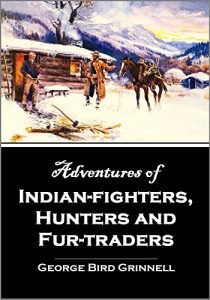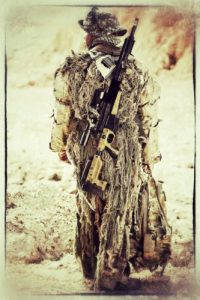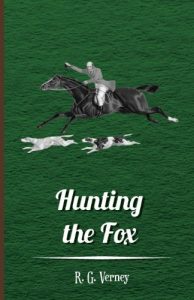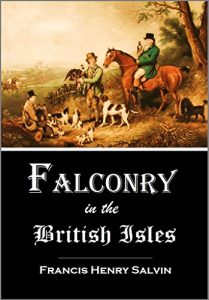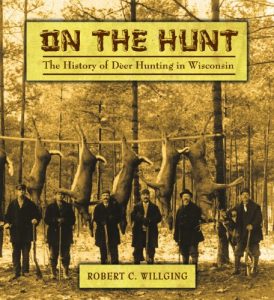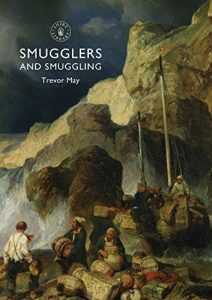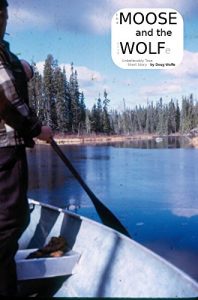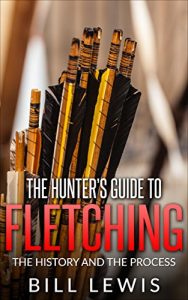I 99eBooks è una directory di eBook. Cerchiamo e classificato intorno alle eBooks Web per te!
Tutti i diritti riservati. I libri e libri elettronici sono di proprietà dei rispettivi proprietari.
Adventures of Indian-fighters, Hunters and Fur-traders (1913) (English Edition)
George Bird Grinnell (1849 – 1938) was an American anthropologist, historian, naturalist, and writer of the Old West. Grinnell graduated from Yale University. Grinnell’s books and publications reflect his lifelong study of the northern American Indian tribes.
Grinnell had extensive contact with the terrain, animals and Native Americans of the northern plains, starting with being part of the last great hunt of the Pawnee in 1872. He spent many years studying the natural history of the region. As a graduate student, he accompanied Lieutenant Colonel George Armstrong Custer’s 1874 Black Hills expedition as a naturalist. He declined a similar appointment to the ill-fated 1876 Little Big Horn expedition.
Grinnell made hunting trips to the St. Mary Lakes region of what is now Glacier National Park in 1885, 1887 and 1891 in the company of James Willard Schultz, the first professional guide in the region. During the 1885 visit, Grinnell and Schultz while traveling up the Swiftcurrent valley observed the glacier that now bears his name. Along with Schultz, Grinnell participated in the naming of many features in the Glacier region. He was later influential in establishing Glacier National Park in 1910. He was also a member of the Edward Henry Harriman expedition of 1899, a two-month survey of the Alaskan coast by an elite group of scientists and artists.
Grinnell was prominent in movements to preserve wildlife and conservation in the American West.
Grinnell writes:
"The accounts which appear in the following pages have to do with a country then unknown; the explorers who penetrated it faced new conditions and met new and primitive peoples. To subsist in these unknown lands they were forced to hunt its animals, and the purpose which led them so far afield was the trading for furs. The book thus deals with a number of cognate subjects, with exploration, hunting, the taking of fur, and Indians in peace and war; and in any or all of these there is excitement and interest enough. Let us look back at some of the happenings in this forgotten West, which is now again being remembered."
CONTENTS
1.An Early Fur Trader
2.Fur Hunters Of The Far West
3.When Beaver Skins Were Money
4.George Frederick Ruxton, Hunter
5.A Boy In Indian Camps
6.The Solitary Hunter
7.The Council At Fort Benton
Originally published in 1913; reformatted for the Kindle; may contain an occasional imperfection; original spellings have been kept in place.
Grinnell had extensive contact with the terrain, animals and Native Americans of the northern plains, starting with being part of the last great hunt of the Pawnee in 1872. He spent many years studying the natural history of the region. As a graduate student, he accompanied Lieutenant Colonel George Armstrong Custer’s 1874 Black Hills expedition as a naturalist. He declined a similar appointment to the ill-fated 1876 Little Big Horn expedition.
Grinnell made hunting trips to the St. Mary Lakes region of what is now Glacier National Park in 1885, 1887 and 1891 in the company of James Willard Schultz, the first professional guide in the region. During the 1885 visit, Grinnell and Schultz while traveling up the Swiftcurrent valley observed the glacier that now bears his name. Along with Schultz, Grinnell participated in the naming of many features in the Glacier region. He was later influential in establishing Glacier National Park in 1910. He was also a member of the Edward Henry Harriman expedition of 1899, a two-month survey of the Alaskan coast by an elite group of scientists and artists.
Grinnell was prominent in movements to preserve wildlife and conservation in the American West.
Grinnell writes:
"The accounts which appear in the following pages have to do with a country then unknown; the explorers who penetrated it faced new conditions and met new and primitive peoples. To subsist in these unknown lands they were forced to hunt its animals, and the purpose which led them so far afield was the trading for furs. The book thus deals with a number of cognate subjects, with exploration, hunting, the taking of fur, and Indians in peace and war; and in any or all of these there is excitement and interest enough. Let us look back at some of the happenings in this forgotten West, which is now again being remembered."
CONTENTS
1.An Early Fur Trader
2.Fur Hunters Of The Far West
3.When Beaver Skins Were Money
4.George Frederick Ruxton, Hunter
5.A Boy In Indian Camps
6.The Solitary Hunter
7.The Council At Fort Benton
Originally published in 1913; reformatted for the Kindle; may contain an occasional imperfection; original spellings have been kept in place.
